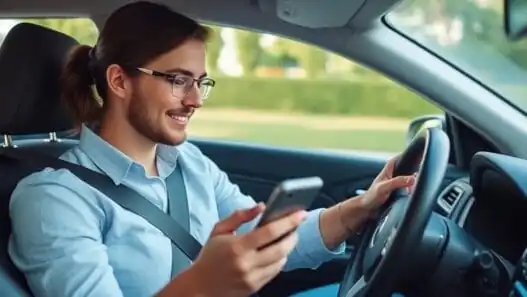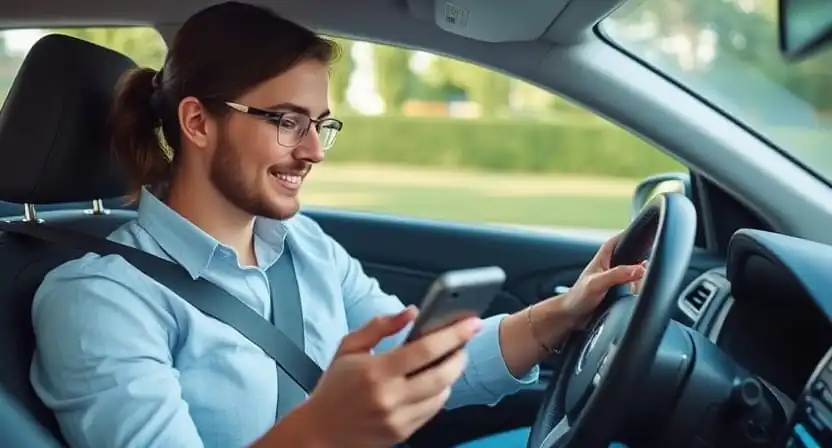In France, using a smartphone GPS while driving is not prohibited in itself, but it is subject to strict conditions defined by the Highway Code. Do you know them?
Table of Contents
Navigating in a car becomes child’s play thanks to the GPS on our smartphones. With just a few clicks, you get a precise and detailed itinerary, even in the twists and turns of the most complex cities. Still, this handy technology is not without its dangers. When used absent-mindedly, a GPS can turn into a real trap for the driver.
The Dangers of GPS While Driving
The main danger of using a GPS while driving is distraction. Indeed, consulting the smartphone screen, entering an address, or zooming in on the map distracts the driver’s attention from the road. However, it is crucial to stay focused on driving to anticipate dangers and react in the event of the unexpected.
Moreover, there are strict conditions defined by the Highway Code:
- The smartphone must be mounted on an approved mount: mounted on the dashboard, outside the driver’s direct field of vision, or mounted on the windscreen, in the area delimited by the windshield wipers.
- Using GPS should not distract your attention from the road. You need to be able to react to unforeseen events at all times.
- It is forbidden to handle a smartphone while driving. This means that you can’t type in an address or zoom in on the screen. You need to plan your route before you hit the road.
- There are even penalties for non-compliance with the conditions.
Because the statistics are alarming:
- One in three drivers uses their phones while driving.
- This practice multiplies the risk of accidents by 3.
- In 2021, 584 people died on French roads due to the use of phones while driving.
- What are the alternatives to smartphone GPS?
Fortunately, there are safer alternatives for finding your way around in the car:
Navigation systems integrated into the vehicle are often more intuitive and ergonomic than mobile applications; they allow you to program your route and follow instructions without taking your eyes off the road.
Standalone GPS: compact and easy to use, they offer a lot of freedom and do not require an internet connection.
GPS apps that connect to your car’s screen via Android Auto or Apple CarPlay: these systems allow you to take advantage of your smartphone’s features while keeping your eyes on the road.
Our tips for driving responsibly with GPS
GPS is a valuable tool for finding your way around in the car, but it should be used responsibly. By following the tips below, you’ll be able to enjoy the benefits of boating without putting your safety at risk. Always remember that caution is the best weapon against road accidents.
So, if you choose to use a smartphone GPS while driving, here are some tips to minimize the risks:
- Plan your route before you hit the road; this will prevent you from handling your smartphone while driving.
- Use a quality approved holder to hold your smartphone in place and prevent it from falling.
- Set your GPS before you hit the road. Set the volume, language, and display mode to limit distractions.
- Don’t handle your smartphone while driving. Assign this task to your passenger or use voice commands.
- Obey the rules of the road: never call, text, or check social media while driving.





















